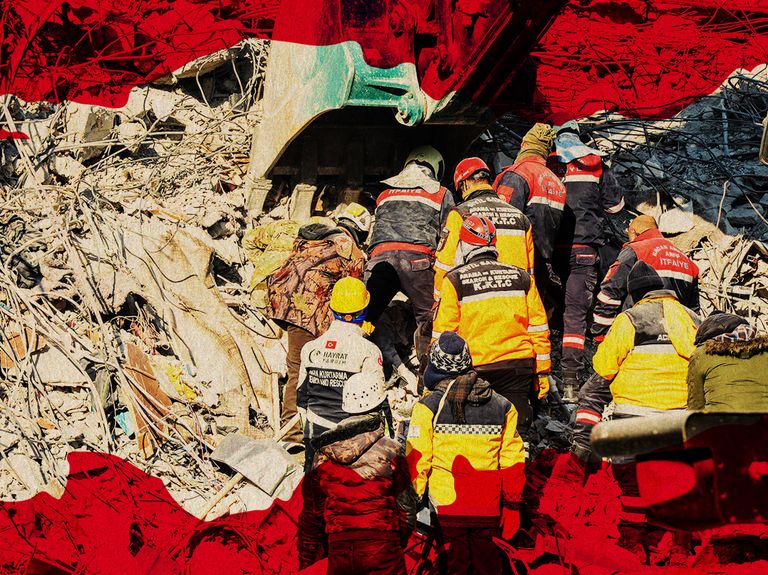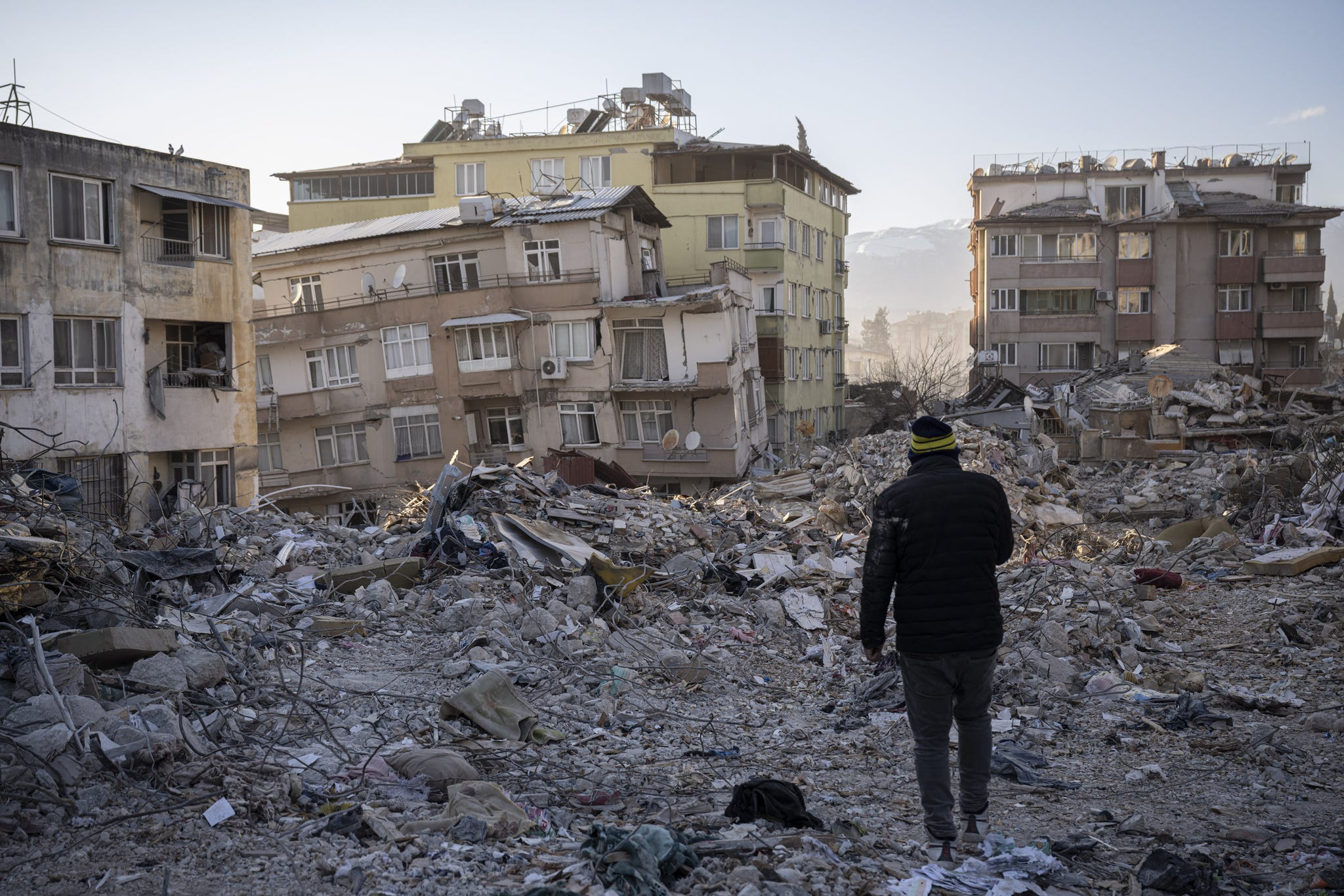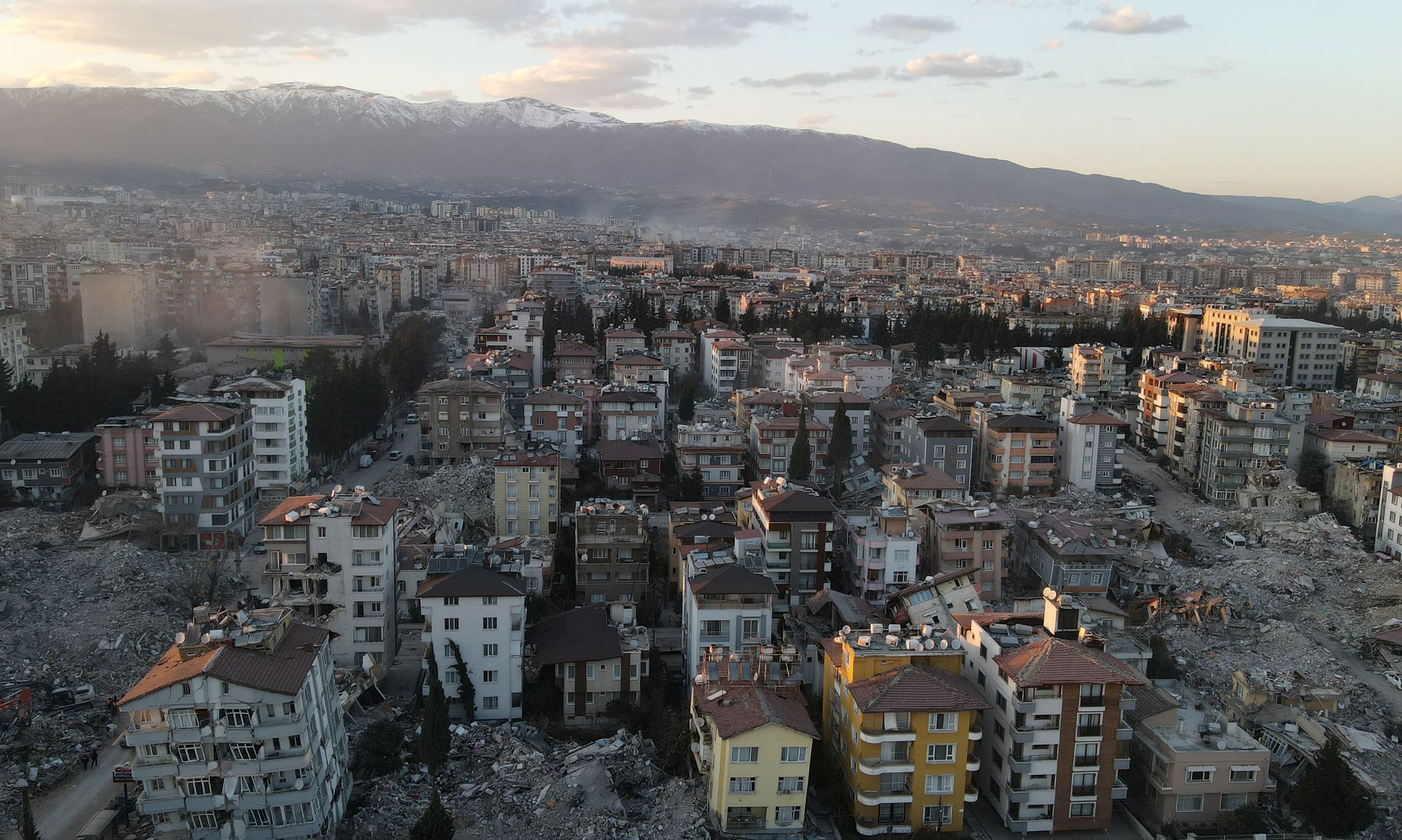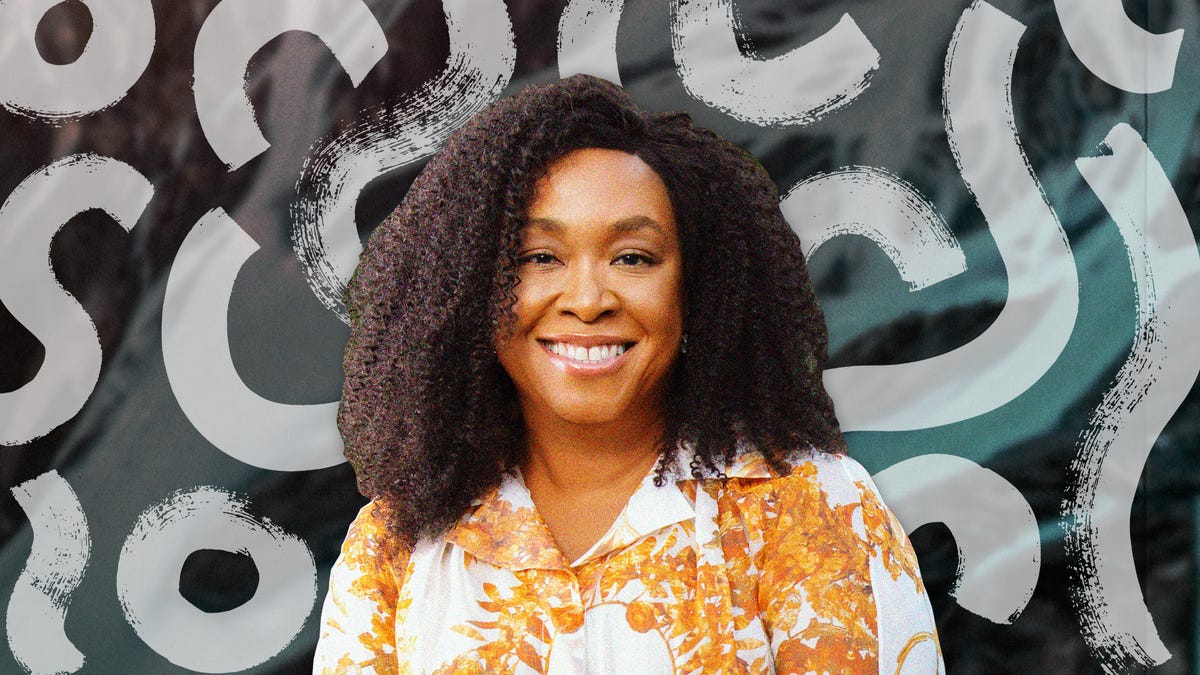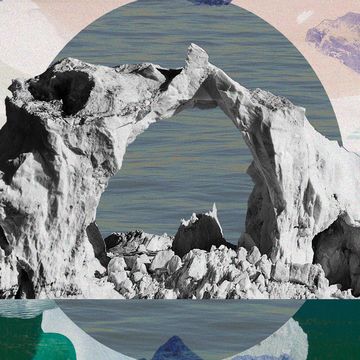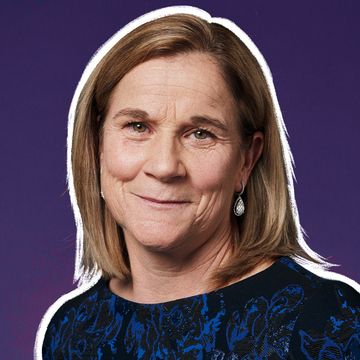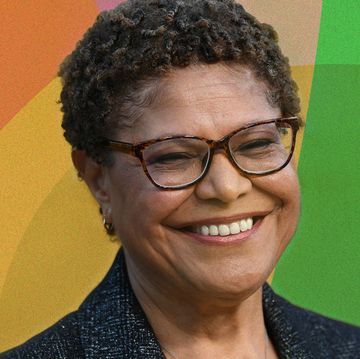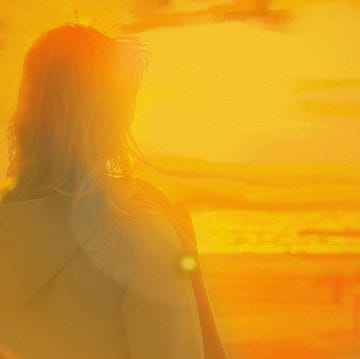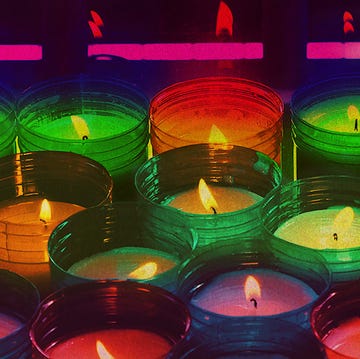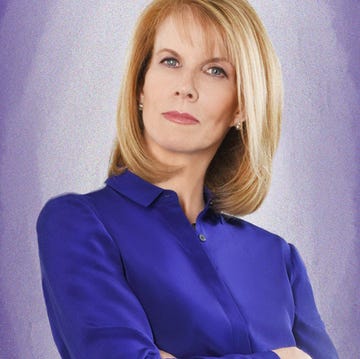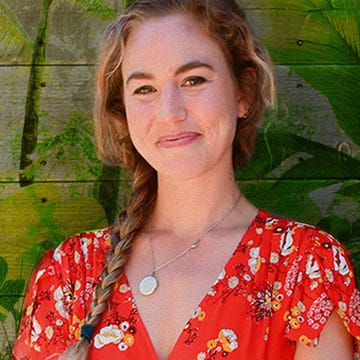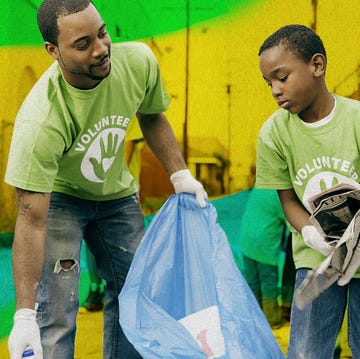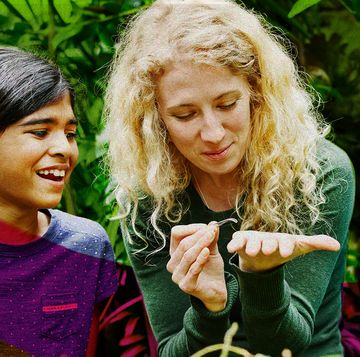The August 1999 earthquake in Turkey caught me while I was sleeping in my parents’ bed. My mom, a doctor, was on duty at the hospital, while my dad, a night owl, was sitting on our small balcony at 3 a.m., chasing one cigarette after another in the summer heat. Seven-year-old me, deep asleep, was jostled awake from a thump in the ground punching our building from down below. The sliding door of my parents’ wardrobe started opening and closing, which could have easily been the story of how I found out magic was real — except for the fact that my dad, in only his shorts, showed up in the room and told me we were getting out. Right now.
He threw on a T-shirt, and I quickly changed my clothes while the room still shook. I don’t think I even knew what an earthquake was at the time. “What is it?” I asked him. “What is going on?” I don’t remember if he answered, but he did rush to our landline and called my mother, then his parents. He assured everyone we were alive, and that’s when I knew something was not right. The phone line broke down, and he hung up. We ran down the stairs and jumped into the car while an eerie silence greeted us on the streets. Without a word, my dad drove to my mom’s hospital. I remember the cracks on the highway and my dad’s careful driving, later learning that parts of the highway outside of Istanbul had collapsed into the earth.
The silence grew into sirens when we got to the hospital’s parking lot and ambulances started rushing into the ER. My mom, a terrible liar to everyone except for me, told me that these ambulances were for the people who got scared and jumped off their buildings. She assured me they were not dead; they just had a few broken bones. When I was a kid, she told me not to squeeze people’s cheeks because it would make them sag. She told me sliced tongue was not actually real tongue so that I would eat it. And she told me people never died out of the blue. I believed her without a doubt.
A few days later, we went back to our apartment. I decided I could only walk with my back physically touching a wall. None of it made sense, but my mom let me slide down the hallway while we turned off the gas and inspected the cracks in our walls. I’d never thought a home could be broken. Ours had fissures throughout with chipped paint and plaster on the ground, but we were lucky. We still had a home.
We spent the summer in and out of our place. I remember sleeping in a car with my parents’ closest friends and their son, who was my best friend and also my first crush. One night, we gazed at the stars and talked about whether we could guess when the next earthquake was going to be based on their alignment. One of us had heard something like that somewhere.
We weren’t alone in that wishful thinking: That summer, an entire nation got a Ph.D. in the pseudoscience of earthquake predictions. Some read the coffee grounds at the bottom of a Turkish coffee cup, some looked at the stars, some turned to the sun, some called a hot day an omen, and honestly, some just had a bad feeling and decided to live outside for a week.
My great-aunt was one of the nearly 18,000 people who died in ’99 after the 7.6-magnitude earthquake and its recurring aftershocks. Büyük hala — as we called her — loved giving people random presents; I wore the colorful slippers she gifted me as a kid well after my feet grew too big. Her face is now a blur to me, but I remember being told how her apartment building was too close to the epicenter and built on an unstable foundation; my introduction to the poor infrastructure that still plagues parts of Turkey. My 80-year-old grandfather heroically pulled his sister out of the rubble after searching for her for days without a drop of water, under the scorching August heat. Shortly after he lost her, his kidneys collapsed. He died in less than a year.
An entire generation of kids grew up not just afraid of earthquakes but also of being stuck under the rubble of what was once their home. Still to this day, whenever I’m back in Istanbul and lying in my childhood bed, I think about the earthquake, the constant drills we had in school, the emergency bags we were told to keep close by — I am 30 years old, and the fear is in my DNA.
When I got the news alert for the first 7.8-magnitude earthquake on Monday, February 6, which has so far taken the lives of more than 36,000 people in 10 provinces in Turkey and in Syria, I called my mom on FaceTime even before reading where the epicenter was. She picked up, and I realized I hadn’t been breathing. She turned on the news, and I watched as she saw each channel change its programming from Turkish soap operas to breaking news. I kept my eyes open until Twitter became too painful.
Turkish is my native tongue. My first word was in Turkish (it was the name of a natural gas company; I know, absurd), and my first “I love you,” and my first dream. It’s the language that introduced me to the world, but since last Monday, it has been the one that has left me hopeless. It is painful to know Turkish and go on social media because the despair is as unfathomable as much as it is pervasive — the suffering of those trying to locate relatives and friends, as well people who are tweeting from under the rubble, trapped. I struggle with accepting that those who appear on my feed might not still be alive.
When I saw a post from my high school friend Nazli last week, my heart broke. Her mom was trapped in a hospital in Iskenderun. “The government is letting people die,” she shared on Instagram. She waited for days for the appropriate relief to show up, and when it did, she told me, it was disorganized. Of course, the government blamed the late and inadequate response on the blocked roads and destroyed bridges and airports it built and oversees. I screamed inside while trying to focus on my job, trying to imagine what my friend is going through.
This is not time for politics, pundits argue, but when you’re Turkish, everything is political. We Turkish millennials have grown up bearing tragedy after tragedy while feeling the — at times unreasonable — burden of defending the country we were born in. Our coming-of-age story would at best be defined as bittersweet. I want to be able to share how beautiful Turkey is, not as a defense to some reductionist observation of an outsider. (For example, many Europeans have asked me if I rode a camel to school — which would have been cool, I guess.) But because I know how amazing it is to dip my feet in the crystal-clear sea or how salty the Mediterranean is or how döner kebab tastes better at 2 in the morning. I am sick of receiving messages from worried friends asking if my family is okay or if I am okay. Being Turkish doesn’t need to be a burden, and somehow, as a country, we’ve accepted it as a verdict of how our lives will turn out.
Turkish millennials became adults at a time of increased government crackdowns (just last Wednesday, the Turkish government restricted access to Twitter, which it has done many times during protests and disasters). We feared going to peaceful demonstrations because of turmoil, while we shied away from a soccer match or a concert because of terror attacks. Many of us can think of at least one moment when disaster struck too close. Maybe an ISIS bomb went off seconds after we left the airport. Over some tea or coffee, we said, “Ulan, that could have been me.”
As time went by, we lost more and more. The unreliable economy made life even less affordable, especially for those who barely made a living, and the wars at our borders created a humanitarian crisis inside the country, making Turkey the largest refugee-hosting country in the world.
A younger generation, if they had the means, have fled for more opportunities somewhere else. I moved to the U.S., where I built a life for myself, made new friends, and built a career. But I also found new fears with new faces, holding the trigger to a destruction that somehow always seems preventable. Those of us who are abroad hate to call our journey a diaspora, but regardless of adjudicating how pervasive our escape was, I carry my Turkishness around in my daily conversations as well as my systemic struggles. And in between the lines, we constantly talk about how unheard and unseen we feel. It doesn’t matter where we are in the world: Istanbul, Hatay, Berlin, or New York.
After 1999, the government ran a campaign on rebuilding cities with sturdier structures. Just last year, President Erdogan tweeted on the anniversary of the earthquake, reiterating his commitment to preventing a destruction of that size ever again. Where you are during a crisis is fate — or as we say in Turkish, “it is what’s written on your forehead.” But a lot of it is also prevention, and it’s become harder to look at the past couple of decades and see it as purely destiny. While running for president in 2019, for example, Erdogan reportedly touted a legislation his party had passed: an amnesty for construction violations even though buildings were not up to code.
My friend Nazli told me she looked up the Iskenderun hospital where she lost her mom. She is no reporter, but she found a document in which the hospital referred to a 2012 report that declared the facility “not fit for an earthquake.” Sure, it’s easy for politicians to say they were not the ones who built a certain building, she told me, but how is that an excuse for their own neglect? She added: How are we supposed to know where we’re safe, and how are we going to trust what we’re told?
Under scrutiny for its slow response — which it has acknowledged — the government reportedly issued arrest warrants for more than 100 people. Yes, the country will not rest until contractors and developers serve their time. But that’s not enough. An investigation of Turkey’s “earthquake tax,” which it implemented after 1999, showed that the government collected more than $38 billion in such taxes. How was that money used, and why was the government of a country on multiple fault lines not prepared to deal with a disaster? We can’t ever stop asking who is going to hold the private sector accountable or who’s going to question elected officials why they’ve allowed the repetition of the same mistakes over and over again.
An earthquake of any large magnitude can devastate communities, no matter what, but Turkey is also facing an infrastructure and democratic crisis. When a building collapses but the next one is still standing tall, it makes one wonder what is fate, and what is man-made. When a newly built hospital or condo is flattened because of inadequate regulation and unscrupulous developers, that is writing on the wall. The southeast, since as long as I can remember, has been one of the most beautiful but also poorer parts of the country, in part due to its ethnic makeup, which also includes a large Kurdish population. It also houses millions of refugees from the Syrian civil war. The earthquake was the perfect storm.
As a nation, we need to grieve. We need to grieve the loved ones we lost and think of them beyond the remains of an unimaginable disaster or a death-toll ticker on the front page of a news outlet.
But also in my grief, I want to find solutions and a brighter future for the country that raised me despite everything that works against it — even when that thing is itself. The next time I’m home, and my dad drives us across the gleaming Bosporus after picking me up from the airport as he always does, I want to find hope. Even when it becomes harder to see the light at the end of the tunnel, I want to believe it is there.
How you can help
Turkey and Syria need your help. Here are three reputable organizations that you can donate to: Ahbap, AKUT, and UNHCR.
Deniz Çam is a writer and producer based in New York City. Currently at The Problem with Jon Stewart, she is also working on multiple screenplays that explore being a Turkish immigrant in the U.S. You can find her on Twitter @DenizCam.
Get Shondaland directly in your inbox: SUBSCRIBE TODAY
